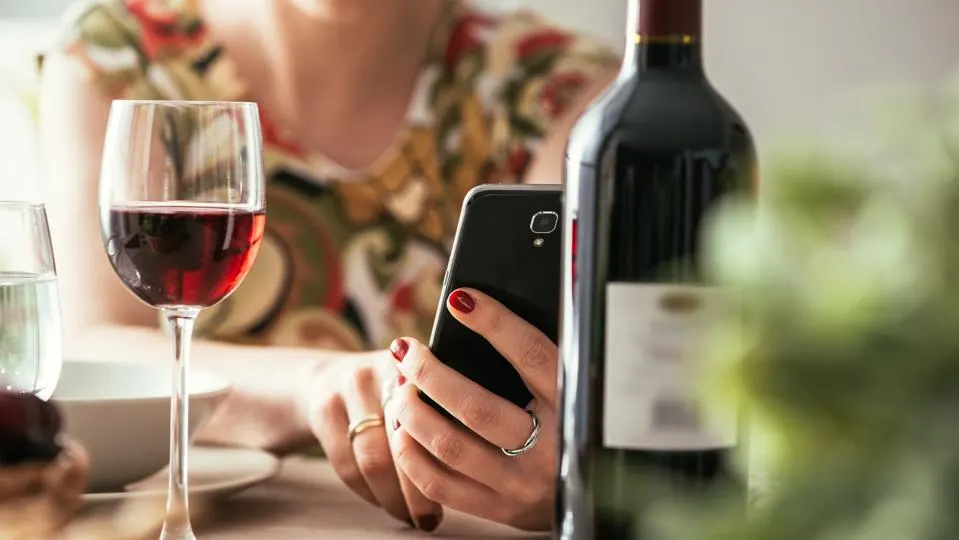The AI Revolution In Wine Fraud Detection
12 February 2024
In an era where authenticity is as valuable as the vintage itself, the wine industry faces a pressing challenge: wine fraud. The deceitful practice, costing millions annually, undermines consumer trust and tarnishes the reputation of venerable vineyards. But what if the solution lies within artificial intelligence and emerging digital olfaction technology? As we stand on the brink of a technological renaissance, AI is poised to revolutionize how we authenticate and appreciate wine.

The AI Frontier In Wine Authentication
The recent advancements in AI, particularly in machine learning, have opened new pathways for wine verification. Research published in a Communications Chemistry article illustrates this breakthrough. Scientists have trained AI algorithms to analyze the chemical composition of wines, enabling them to trace a bottle back to its specific vineyard and vintage with remarkable accuracy. The study encompassed 80 different wines, sourced from seven estates in the Bordeaux region of France, spanning from 12 different vintages 1990 to 2007. This method, reliant on gas chromatography and the analysis of complex compound concentrations, has not only shown a near perfect (99%) success rate in identifying the wine's estate but also a 50% accuracy in determining the vintage.
Enter Digital Olfaction
Yet, the detection arsenal is not limited to laboratory settings. Aryballe, a startup pioneering in digital olfaction technology, is bringing a new dimension to sensory analysis. As I discussed with Sam Guillaume, CEO of Aryballe, this technology mimics the human olfactory system, translating odor data into actionable insights through AI. Sensors capture odor signatures, which are then analyzed by AI algorithms against a vast library of known scents. This groundbreaking approach has practical applications, ranging from engineering the ideal "new car" smell to detecting food spoilage.
The Future Of Wine Authentication
Imagine integrating this digital olfaction technology with the AI tools used for chemical analysis. This synergy could result in a handheld device capable of authenticating wine with a simple scan. Such a device, potentially a feature in future smartphones, would not only empower consumers against fraud but also offer a new, objective way to review and appreciate wine. It’s a step beyond the traditional sommelier’s expertise, democratizing wine tasting and ensuring authenticity at every sip.
AI And Consumer Empowerment
The implications of AI for the wine industry extend far beyond the vineyards and laboratories. In the hands of consumers, AI-powered devices could offer real-time verification of wine authenticity. This empowerment would disrupt the counterfeit wine market, often targeting unsuspecting buyers with sophisticated fakes. Moreover, it would foster a new culture of informed connoisseurs who can rely on technology to guide their choices.
Enhancing The Wine Experience
Beyond fraud detection, AI and digital olfaction can enrich the wine experience. By objectively analyzing a wine's bouquet, enthusiasts can learn about the subtle notes and flavors that define a region or a particular winemaking process. This education could deepen the appreciation of wine, bridging the gap between novice drinkers and seasoned aficionados.
Quality Control In Winemaking
Vintners, too, stand to benefit. Quality control, a critical aspect of winemaking, could be significantly streamlined with AI. Winemakers can achieve consistency and excellence by analyzing the chemical and olfactory profiles of wines at different stages. Moreover, this technology could assist in blending wines, a skill traditionally reserved for the most experienced in the field.
The Road Ahead
As we look to the future, integrating AI and digital olfaction in wine authentication and appreciation seems not just plausible but inevitable. The creation of comprehensive digital odor libraries and advanced AI algorithms promises a new era in the wine industry. These technologies will not only safeguard against fraud but also enhance the sensory experience of wine, making it more accessible and enjoyable for all.
In the world of wine, AI offers a unique blend of scientific precision and sensory enhancement, promising a future where every bottle tells a true story and every glass offers a genuine taste of its origin. As we continue to teach computers to sense the world around us, we unlock new possibilities to enrich our lives, one bottle at a time.
Related Articles
The 12 Best Smart Home Devices Transforming Homes in 2025
By now, “smart” versions exist of just about every home appliance, gadget and gizmos we can think of. However, manufacturers continue[...]
11 Most Reliable AI Content Detectors: Your Guide To Spotting Synthetic Media
Since the launch of ChatGPT just two years ago, the volume of synthetic – or fake – content online has increased exponentially.[...]
The AI-Powered Citizen Revolution: How Every Employee Is Becoming A Technology Creator
Something remarkable is happening in organizations around the world.[...]
6 Mistakes IT Teams Are Guaranteed To Make In 2025
The next wave of artificial intelligence isn't just knocking at enterprise doors - it's exposing fundamental flaws in how organizations approach technology transformation.[...]
2025’s Tech Forecast: The Consumer Innovations That Will Matter Most
Consumer technology covers all of the tech we buy to make our lives more convenient, productive or fun.[...]
7 Healthcare Trends That Will Transform Medicine In 2025
Healthcare has evolved dramatically in recent years, with technology driving countless new opportunities, just as demographic and societal factors have created new challenges.[...]
Sign up to Stay in Touch!
Bernard Marr is a world-renowned futurist, influencer and thought leader in the fields of business and technology, with a passion for using technology for the good of humanity.
He is a best-selling author of over 20 books, writes a regular column for Forbes and advises and coaches many of the world’s best-known organisations.
He has a combined following of 4 million people across his social media channels and newsletters and was ranked by LinkedIn as one of the top 5 business influencers in the world.
Bernard’s latest book is ‘Generative AI in Practice’.










Social Media